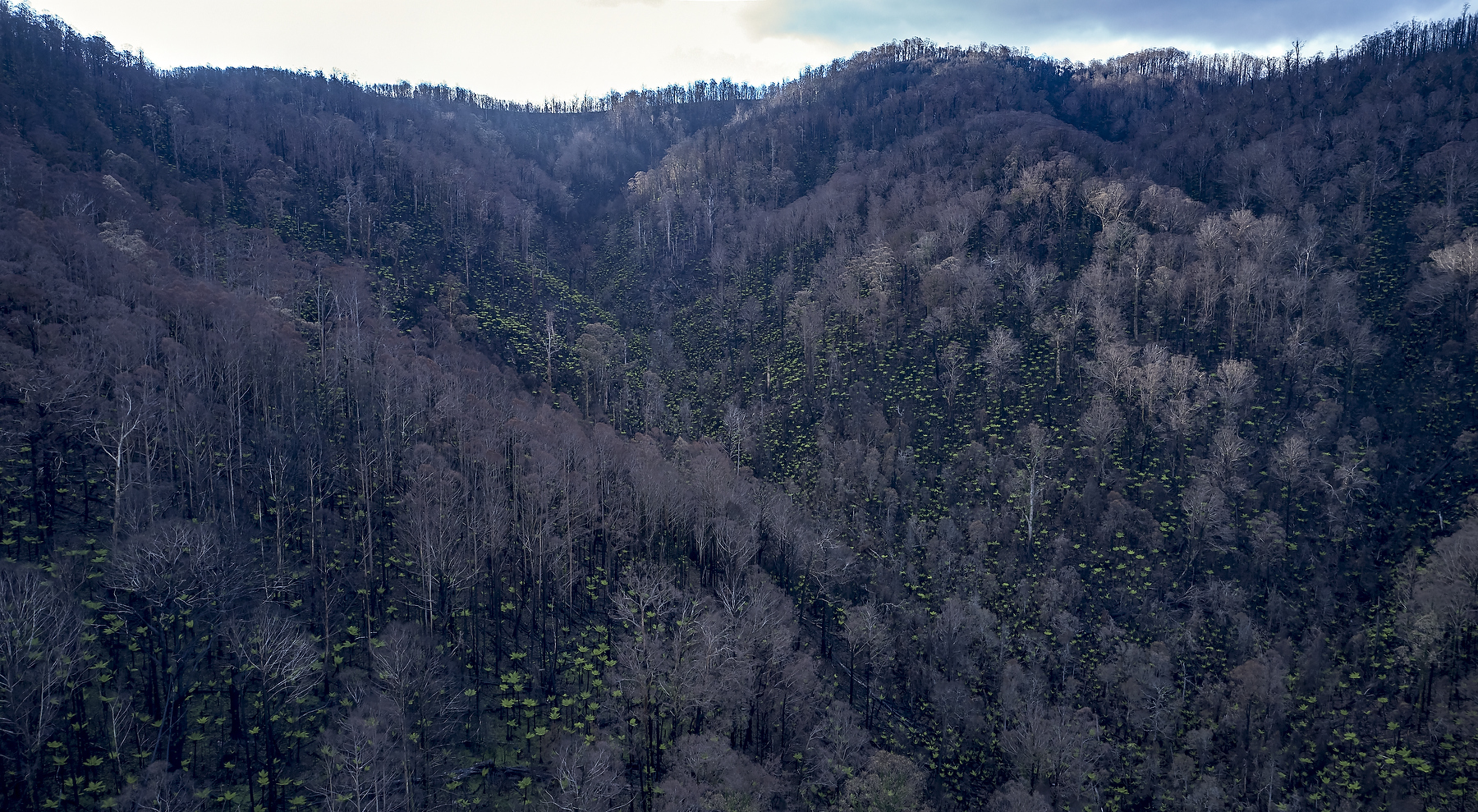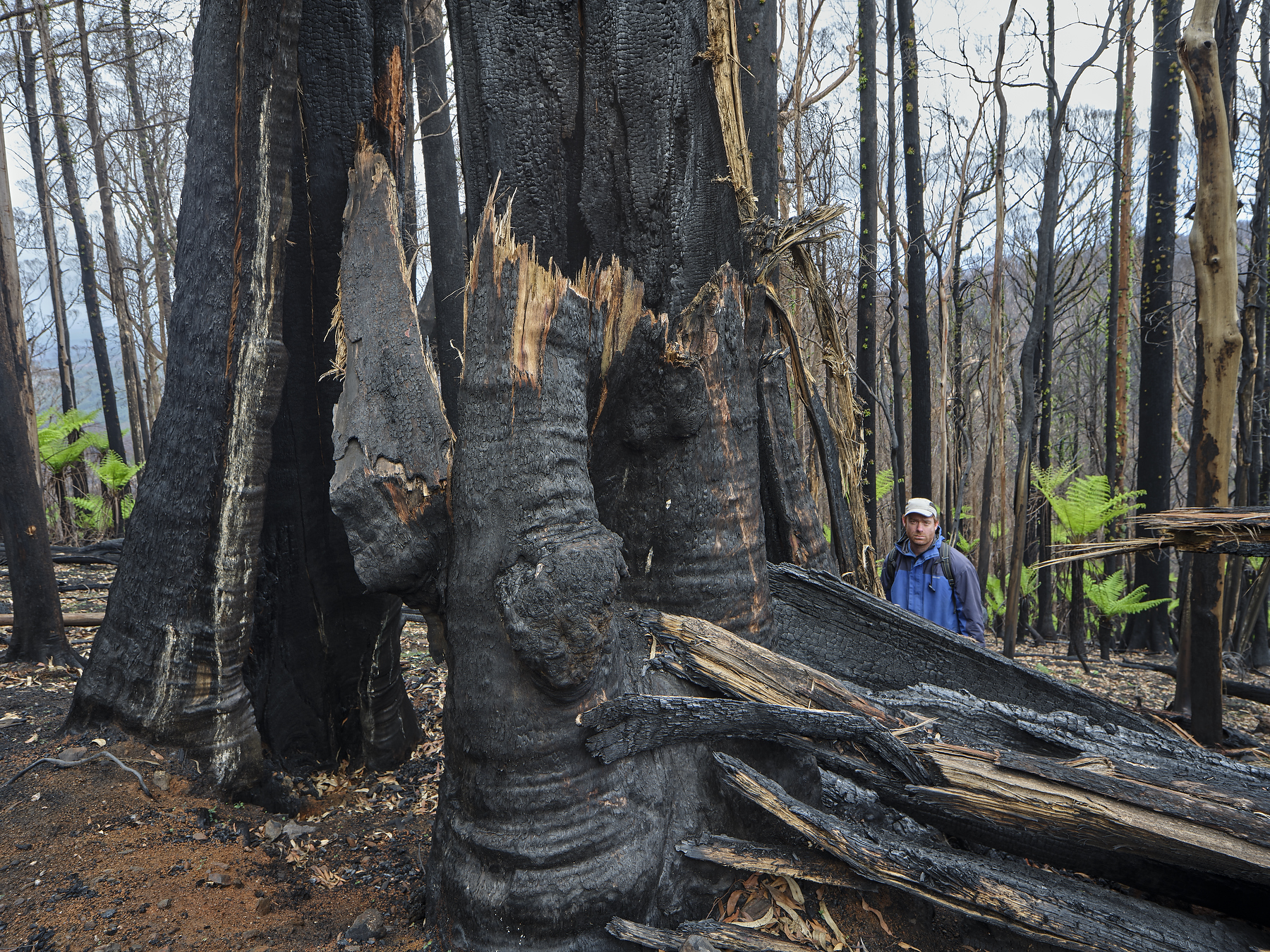
Legal exemption for the logging industry from federal environment law was signed off on Monday for another ten years in spite of the horrific impacts of the bushfires on forests and wildlife.
Regional Forest Agreements (RFAs) are agreements between VIC State and Federal governments which give logging a special exemption from Federal environment laws (the EPBC Act). Logging is the only extractive industry which receives legal exemption, and will be disastrous for threatened species and forests devastated by the fires.
Given the extensive impacts of the bushfires on forests and wildlife the agreements should have been left to expire to give species a chance to recover. RFAs have allowed logging in thousands of hectares of threatened species habitat for over 20 years, and this will continue now they've been renewed. This will have devastating consequences for wildlife already on the brink of extinction. The Age have reported here.
Last year the Victorian state government rolled over short-term RFAs in order to continue the archaic 20-year agreements under the guise of ‘modernisation’, but there is nothing ‘modern’ about the continued exemption. The review included submissions and community consultation across Victoria. As a result of the consultation a report was released which revealed that protecting native forests from logging was identified by the majority of respondents as being the most important way of improving forests for all Victorians. After 20 years of the contracts, the ‘modern’ view is that they should be scrapped, but the Victorian and Federal governments will continue to give the logging industry special exemption from Federal laws for another decade.
A scientific advisory panel has been created to make scientific recommendations and assessments on the RFAs, one of the key recommendations is a reassessment of the Comprehensive Adequate and Representative (CAR) reserve system. The CAR reserve system, which is a key part of the exemptions, has been gravely impacted by the bushfires. According to analysis of spatial data of the reserve system in East Gippsland and fire extent mapping, over two thirds of East Gippsland’s parks, reserves, and SPZ’s (Special Protection Zones) which constitute the CAR reserve system are within the fire extent. Of 104 parks managed by Parks Victoria, 34 were entirely burnt out.
 Map depicting bushfire impacts on East Gippsland reserves.
Map depicting bushfire impacts on East Gippsland reserves.
Credit: Fauna and Flora Research Collective (FFRC)
Initial assessments into the impacts of the bushfire were laid bare in a government report:
- Over 62% of Long-footed Potoroo habitat has burnt (EPBC listed)
- Over 40% of Sooty Owl habitat has burnt
- Over 25% of Greater Glider habitat has burnt (EPBC listed)
- 70% Warm temperate rainforests have burnt
- 30% cool temperate rainforests have burnt
These figures were calculated while the bushfires were still very active, and are only initial indications of the impacts to threatened species and Environmental Vegetation Communities (EVCs). The Federal government has also released a list of provisional species which need urgent action and management plans. They acknowledge that threatened species are in a dire state following the fires and require immediate protection measures, but are signing off on agreements that allow logging of their habitat for the next decade. This is an appalling and unacceptable response to the bushfires.
In November last year the Victorian Labor government announced protection for 96,000 hectares of forest across Victoria. These forests were designated as ‘Immediate Protection Areas (IPAs) for the threatened Greater Glider. Based on an analysis of Victorian government spatial data that depicts the extent of the IPAs and mapping of the extent of fire impacted forests in East Gippsland, approximately 90% or of recently protected forest within the East Gippsland IPA is now burnt, including the ancient forests of Kuark, one of the most heavily impacted areas. Areas that were set aside for protection have burnt, and now the exemptions will allow logging in some of the last remaining critical unburnt habitat.
Under the dodgy agreements the last remaining fragments of unburnt forests in East Gippsland will continue to be logged. These areas are crucial for the recovery of threatened species and urgently need protection. You can take action by emailing Premier Daniel Andrews here.
 Fire sensitive rainforest gullies which may never recover, Kuark East Gippsland
Fire sensitive rainforest gullies which may never recover, Kuark East Gippsland
The Victorian and Federal governments have rolled over these 10-year agreements with no consideration of the impacts of the bushfires, which are still yet to be fully understood or assessed. Allowing logging to continue to be exempt from Federal environment laws will spell disaster for fire-affected threatened species across Victoria. The RFAs have fueled a massive decline in wildlife and biodiversity, and now that's set to continue for another decade. But threatened species are running out of time.
Renewal of the exemptions is a blatant disregard of the impacts of the recent bushfires on threatened species habitat and is in direct contravention of the purpose of the review. While we are experiencing an unprecedented health crisis due to COVID-19, governments are sneaking through laws which will have lasting detrimental impacts to environmental values across Victoria.
 Unburnt forests in Errinundra, still scheduled to be logged under the exemptions
Unburnt forests in Errinundra, still scheduled to be logged under the exemptions
There is no way to “modernise” these archaic agreements, they exist solely to give the logging industry special exemption from Federal Environment laws. Over 66% of East Gippsland’s reserve system is within the fire extent. Every patch of forest that’s left in East Gippsland should be protected in light of the devastating fires and these agreements left to expire.
The bushfires have wreaked havoc on forests and wildlife in East Gippsland. The Victorian government cannot continue to ignore calls from scientists and Victorian communities to scrap the exemption for the logging industry. Given so much of the reserve system has burnt, its likely the agreements won't even be legal.
Environmental Justice Australia (EJA) have released a detailed report about the failure of the RFAs. They say; "The consequences of the fires and the impact on CAR reserves also raise legal issues in relation to whether the agreements continue to be binding, whether RFAs are legally valid, and whether exemptions to the Environment Protection and Biodiversity Act 1999 founded on RFAs continue to apply."

Old growth forests on Mt Kuark burnt in the 2019/2020 bushfires
The exemptions have been a death sentence for Victoria’s threatened and endangered species for over 20 years and the Daniel Andrews government must take action to ensure fire-affected species can recover. Rolling over these agreements for another 10 years is an outrageous response to the catastrophic bushfires.
Logging has been suspended in East Gippsland and shouldn’t be allowed to continue. The government must bring forward the transition out of native forest logging to protect unburnt forests and allow burnt forests to recover. Another decade of logging in threatened species habitat under the exemptions will push wildlife further to the brink of collapse.
While this unprecedented health crisis continues to unfold, we'll still be hard at work campaigning for the protection of East Gippsland's forests. You can help the work of GECO by donating here.
This article originally appeared on Friends of the Earth member group GECO's website.
Whilst you are here, please make a tax deductible donation. Friends of the Earth relies on donations from people like you to keep running campaigns for social and environmental justice.